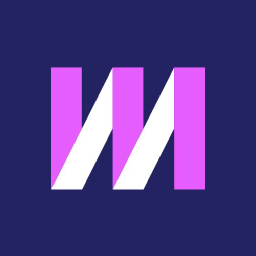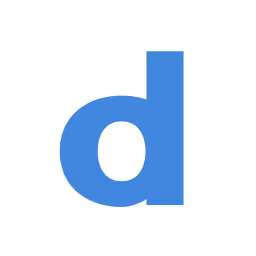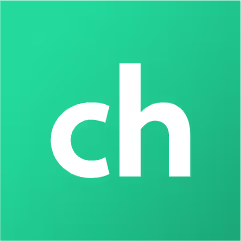Adversus Alternatives
Need an Adversus alternative? We compare 10 other platforms. See a detailed breakdown of features, price points, and ideal use cases.
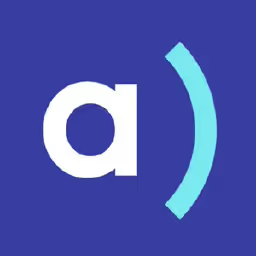
Adversus is a solid choice for many, and for good reason. It excels at outbound calling for tasks like telemarketing and appointment setting. It's known for being user-friendly with reliable support, which helps teams automate calls.
But like any tool, it has limits. Some users find inbound call handling cumbersome or wish for better overview tools. We analyzed the best alternatives based on G2 reviews to help you shortlist your options for a deeper review. Let's get started.
A Note on 11x Digital Workers
Before we dive into direct alternatives, consider 11x. If you are exploring digital workers to supplement your sales team, their AI agents handle a range of tasks beyond outbound calls.
At 11x, we provide a GTM platform where AI agents manage the sales process. Our agent, Alice, finds prospects, conducts outreach via email and LinkedIn, and updates your CRM. Julian qualifies incoming leads and schedules meetings.
We replace separate tools for data enrichment, outreach, and email warmup by combining these functions into a single platform.
Adversus Alternatives
The following section details top Adversus alternatives. We analyze each option's price, main features, and compare its advantages and disadvantages against Adversus.
1) Aircall
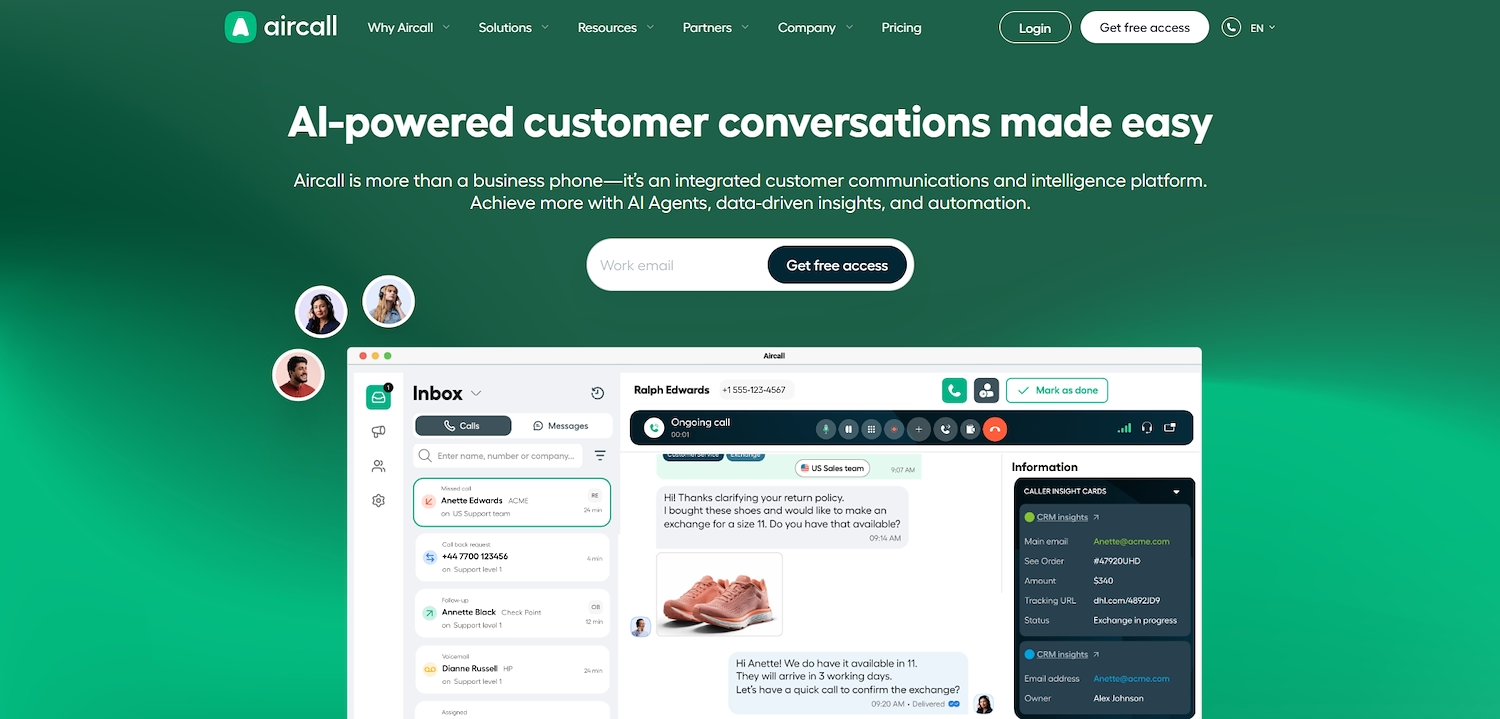
Aircall is a cloud platform for customer communications. It combines voice, SMS, and WhatsApp to support sales and customer service teams. The system suits outbound sales calls with its Power Dialer and click-to-dial functions. For inbound support, it uses IVR and smart routes. AI Voice Agents manage calls 24/7, and the platform provides real-time coaching for representatives.
Aircall's Main Features
The AI Voice Agent operates 24/7 to autonomously handle, qualify, and route inbound calls.
A unified workspace allows teams to manage calls, SMS, and WhatsApp conversations from a single interface.
AI Assist provides real-time coaching for representatives during live calls and helps automate follow-up workflows.
The platform offers over 100 native integrations with CRMs and help desks, including Salesforce, HubSpot, and Zendesk.
How Aircall Compares to Adversus
Average Review score: 4.4/5 stars based on 1,314 G2 reviews.
Aircall provides an AI Voice Agent to handle inbound calls around the clock. This offers more automation for support tasks compared to Adversus, which focuses more on outbound campaigns.
The platform combines calls, SMS, and WhatsApp into one view. This differs from Adversus, which is primarily a tool for voice calls, and creates a unified hub for customer conversations.
It connects with over 100 other business applications, including many CRMs. This extensive integration list offers more flexibility than Adversus to connect different business tools.
The tool includes AI Assist for live coaching during calls. This feature gives managers better real-time oversight, an area where some Adversus users see room for improvement.
Potential Downsides Of Aircall Vs. Adversus
Aircall's outbound tools are more general, which differs from Adversus's specialized features for high-volume telemarketing.
The platform requires a minimum of three users for its plans. This structure may not suit very small teams or individual sales agents.
Some users report occasional connection problems or application lag, which contrasts with the stable performance often noted with Adversus.
Its interface integrates multiple channels like SMS and WhatsApp. For teams that focus purely on voice, this can feel less direct than Adversus's call-centric layout.
Budget and Pricing Considerations
Aircall's pricing starts at $30 per user per month (billed annually), which is substantially lower than Adversus's $175 monthly rate. However, Aircall requires a three-user minimum. This makes Aircall a more cost-effective choice for teams of three or more, while Adversus offers a single, higher-priced tier for specialized outbound calling.
2) CloudTalk
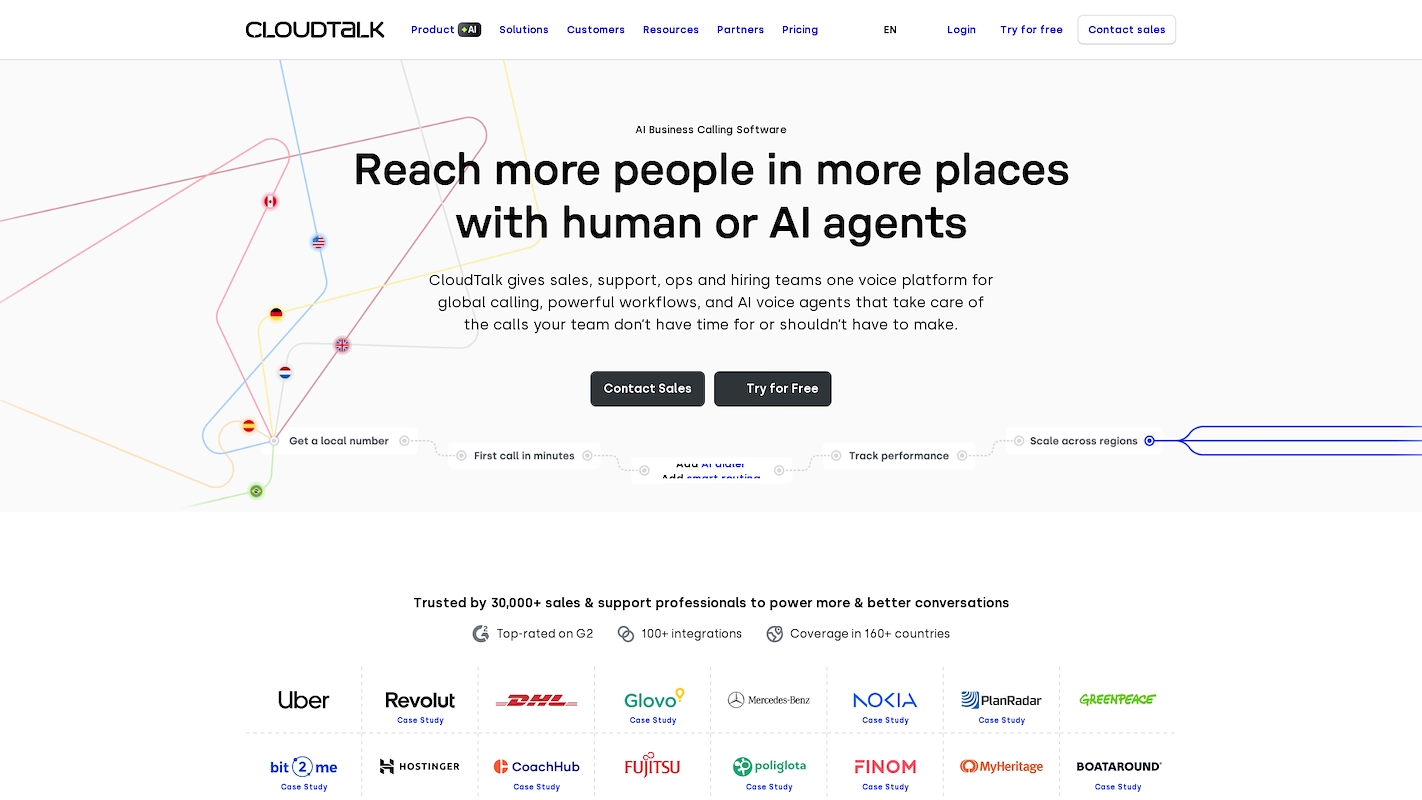
CloudTalk is an AI-powered, cloud-based platform for business calls with coverage in over 160 countries. It is designed for both outbound sales and inbound support, using AI voice agents, advanced dialers, and smart routes. The system unifies global telephony with messaging, analytics, and over 100 pre-built integrations for CRMs and helpdesks. It helps organizations reach more prospects and serve customers faster.
CloudTalk's Main Features
AI capabilities include voice agents for 24/7 calls and a sales dialer with preview, power, and parallel modes.
The system integrates SMS and WhatsApp messaging, which enables automated follow-ups when calls go unanswered.
Coaching tools allow managers to monitor live calls, with options to whisper to agents or barge into conversations.
It provides over 100 native integrations with CRMs and helpdesks, along with an open REST API for custom workflows.
How CloudTalk Compares to Adversus
Average Review score: 4.4/5 stars based on 1,384 G2 reviews.
CloudTalk provides AI voice agents to manage inbound calls 24/7. This differs from Adversus, which concentrates more on agent-led outbound campaigns.
The platform includes several dialer modes, such as preview, power, and parallel. This gives sales teams more flexibility in their outreach methods compared to Adversus's outbound system.
It offers live coaching features like whispering to agents or barging into calls. This provides a level of real-time supervision that some users find lacking in Adversus's overview tools.
The tool integrates SMS and WhatsApp messaging for follow-ups. This creates a multi-channel communication hub, whereas Adversus is primarily designed for voice calls.
Potential Downsides Of CloudTalk Vs. Adversus
CloudTalk's features support general sales and support. This differs from Adversus's specialized tools, which are built for high-volume outbound telemarketing campaigns.
The platform integrates multiple communication channels. For teams that only need voice calls, this unified interface can seem less direct than Adversus's call-focused design.
Some users report occasional issues with call quality or connection. This may be a factor for teams that need the consistent stability associated with Adversus for important business calls.
Budget and Pricing Considerations
CloudTalk's pricing starts at $19 per user per year for its Lite plan, offering a much lower entry point than Adversus's single plan at $175 per month. This makes CloudTalk a more cost-effective option for teams with basic needs, while Adversus's all-inclusive price is aimed at users requiring its full specialized toolset.
3) RingCentral Contact Center
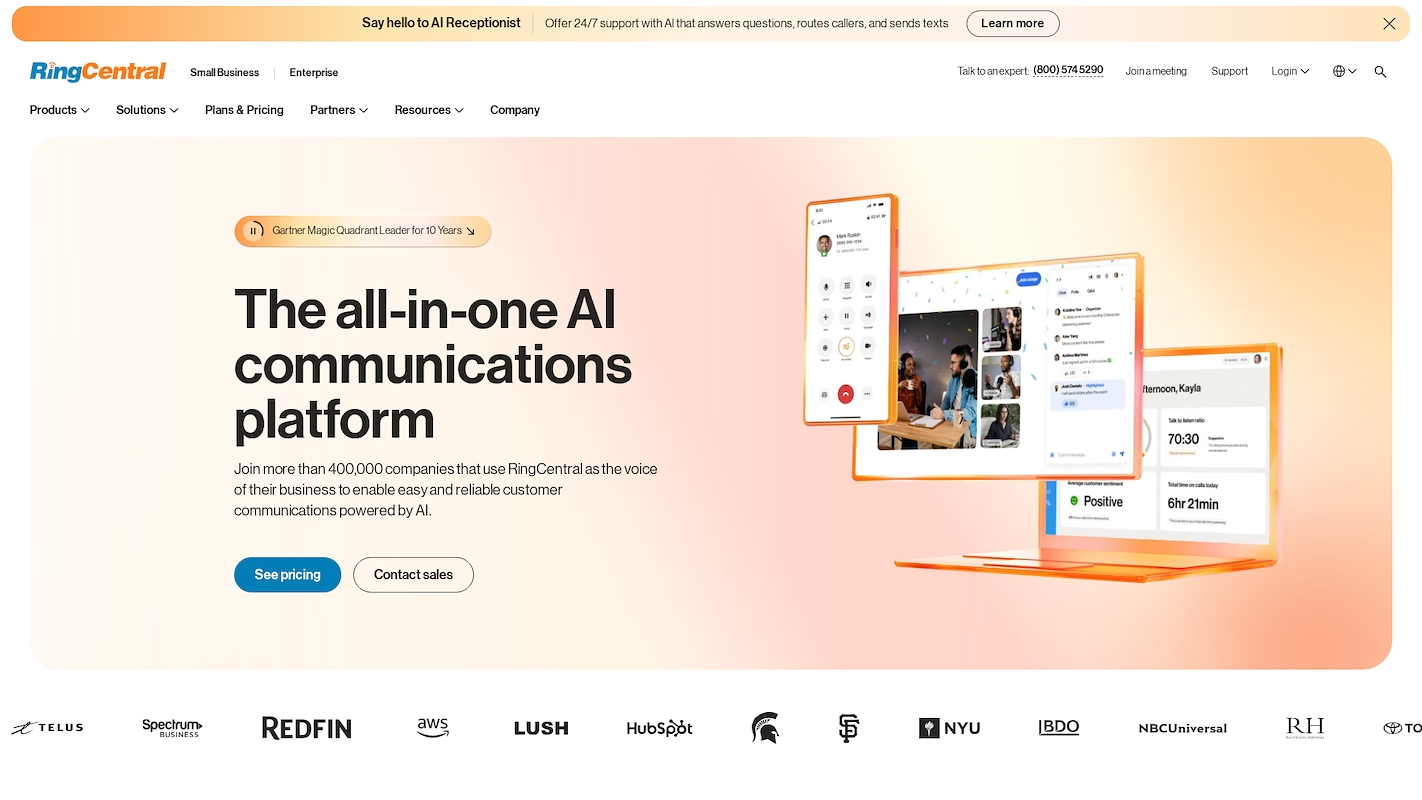
RingCentral Contact Center is a cloud platform that unifies contact center and communication tools. It handles customer interactions across voice, SMS, email, and over 30 digital channels. The service suits both inbound support and outbound sales campaigns.
The system provides intelligent routing, workforce management tools, analytics, and numerous integrations. It operates with a 99.99% uptime guarantee and enables remote work for customer-facing teams through a single application.
RingCentral Contact Center's Main Features
Manages customer interactions across voice, SMS, email, and over 30 digital channels.
Provides AI tools like sentiment analysis, real-time agent assistance, and auto-generated call summaries.
Includes workforce engagement tools for quality assurance, scheduling, and performance forecasting.
Uses intelligent routing with skills-based, percentage, and priority options to direct customer inquiries.
How RingCentral Contact Center Compares to Adversus
Average Review score: 4.0/5 stars based on 154 G2 reviews.
RingCentral Contact Center supports over 30 digital channels, including email and social media. This offers a broader range of customer communication options compared to Adversus, which is mainly built for voice calls.
It offers over 300 prebuilt integrations with other business tools. This provides significantly more connectivity options than Adversus, allowing for a more customized tech stack.
The platform includes workforce management tools for scheduling and performance analysis. This gives managers more direct oversight than Adversus, which has more limited tools for team supervision.
This tool provides AI-powered features like sentiment analysis and real-time agent assistance. This differs from Adversus, which focuses its automation on outbound dialing rather than on-call agent support.
Potential Downsides Of RingCentral Vs. Adversus
RingCentral Contact Center is an all-in-one platform. This can make its outbound tools feel less specialized for high-volume telemarketing compared to Adversus, which is built specifically for that purpose.
The platform's setup can be complex, with an average implementation time of two months. This is different from Adversus, which is often noted for being more user-friendly and quicker to start.
Some users report occasional issues with call quality. This might be a concern for teams that need consistent voice clarity, an area where Adversus is generally considered stable.
Its pricing is often custom and can be complex due to its many features. This contrasts with Adversus's single, transparent pricing tier, which can be simpler for budgeting.
Budget and Pricing Considerations
Adversus offers a single, transparent plan at $175 per user monthly, making budgeting straightforward. RingCentral Contact Center uses a custom pricing model, which can be better for teams needing a tailored feature set but requires a direct quote. For detailed pricing, visit the RingCentral Contact Center's official website.
4) Five9
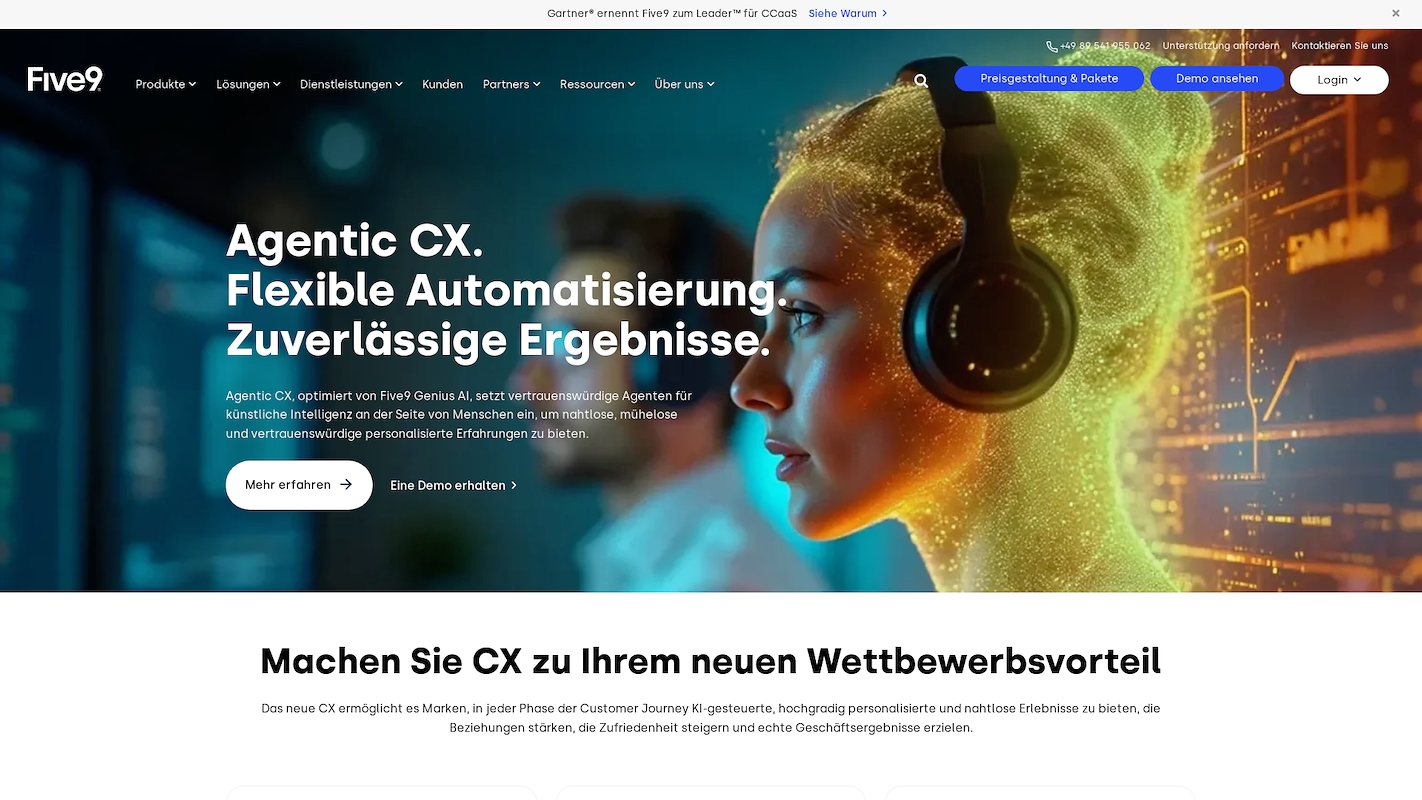
Five9 is a cloud contact center platform for inbound, outbound, and blended customer interactions. It offers multiple dialer modes, such as predictive and power, for sales campaigns. The system handles voice and digital channels and integrates with major CRMs to unify data for sales and service teams.
Five9's Main Features
Includes the Genius AI suite with conversational AI agents, AI Agent Assist for live support, and AI-generated summaries.
Provides a workforce engagement management suite with tools for quality management, performance tracking, and gamification.
Guarantees 99.999% uptime with a service-level agreement and offers open APIs and SDKs for custom integrations.
Supports omnichannel engagement across voice and digital channels like chat, email, social media, SMS, and video.
How Five9 Compares to Adversus
Average Review score: 4.1/5 stars based on 533 G2 reviews.
Five9 handles customer interactions across voice, email, and social media. This creates a unified communication hub, unlike Adversus, which concentrates on voice calls.
The platform offers AI Agent Assist to give live support to representatives during calls. This differs from Adversus, where automation focuses on outbound dialing instead of real-time agent guidance.
It includes a workforce engagement suite with tools for quality management and performance tracking. This provides managers with more direct oversight than the supervision tools available in Adversus.
This tool provides multiple dialer modes, such as predictive and power dialing. This offers more flexibility for outbound campaigns compared to the dialing system in Adversus.
Potential Downsides Of Five9 Vs. Adversus
Five9's setup can be more involved, with some users reporting an implementation time of two months. This is different from Adversus, which is often noted for a more direct onboarding process for specialized outbound teams.
The platform's all-in-one design includes many features for different channels. For teams that focus only on high-volume outbound calls, this broad scope might feel less direct than Adversus's specialized telemarketing interface.
Some users find that its user interface can feel dated or unintuitive for new administrators. This contrasts with Adversus, which is generally seen as having a more modern and straightforward layout for its core functions.
Its pricing model is typically custom and requires a direct quote. This can make budgeting less predictable compared to Adversus's single, transparent pricing tier.
Budget and Pricing Considerations
Adversus offers a single, transparent plan at $175 per user monthly, making budgeting straightforward. Five9 uses a custom pricing model that requires a direct quote. For detailed pricing, visit Five9's official website.
5) Dialpad Ai Contact Center
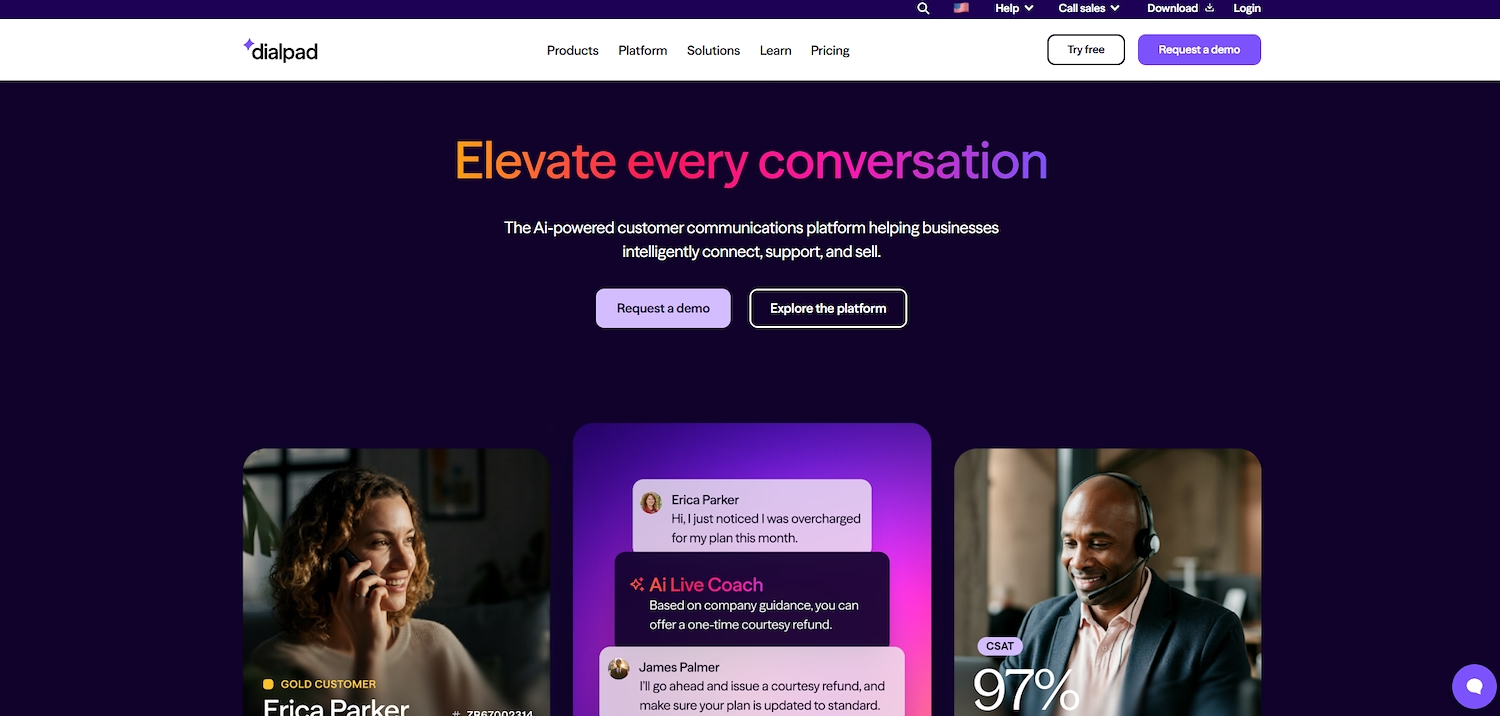
Dialpad Ai Contact Center is a cloud platform for sales and service teams. It manages customer interactions across voice and digital channels like SMS and social media. The system has multiple dialer modes for outbound campaigns. For inbound traffic, AI routes calls to the correct agent.
It also provides real-time assistance and automates post-call summaries to support agent workflows.
Dialpad Ai Contact Center's Main Features
Real-time AI provides live transcription, sentiment analysis, automated call summaries, and in-call coaching.
The platform supports omnichannel communications by handling voice, video, messaging, and chat within one application.
AI agents and chatbots manage routine questions, which allows human agents to focus on complex issues.
It includes analytics dashboards for handle time, agent performance, CSAT trends, and workforce management.
How Dialpad Ai Contact Center Compares to Adversus
Average Review score: 4.4/5 stars based on 4,351 G2 reviews.
Dialpad Ai Contact Center provides real-time AI assistance like live transcription and sentiment analysis, which offers more in-call support for agents compared to Adversus's focus on outbound dialing automation.
The platform unifies communication across voice, video, and messaging. This creates a single hub for customer interactions, which differs from the voice-centric design of Adversus.
It uses AI agents and chatbots to handle routine customer questions. This allows human agents to focus on more complex issues, a feature not central to Adversus's agent-driven model.
This tool includes detailed analytics dashboards for agent performance and CSAT trends, providing deeper insights than the overview tools available in Adversus.
Potential Downsides Of Dialpad Vs. Adversus
Dialpad Ai Contact Center offers a broad set of tools for general communication. This approach is less focused than Adversus, which builds its entire platform around features for high-volume outbound calling.
The platform's all-in-one design can feel complex for teams that only need telemarketing tools. In comparison, Adversus provides a more direct user experience tailored specifically for outbound sales agents.
Some users mention that the application can occasionally lag or have connection problems. This may be a concern for teams that require the consistent stability Adversus offers for back-to-back calls.
Budget and Pricing Considerations
Adversus offers a single, transparent plan at $175 per user monthly, making budgeting straightforward. Dialpad Ai Contact Center does not list public pricing, as plans are often tailored to a company's needs. For detailed pricing, visit the Dialpad Ai Contact Center's official website.
Get Started with 11x Digital Workers
If your sales process requires more than outbound calling, consider 11x. Our digital workers manage lead generation, outreach, and CRM updates on one platform. This approach can supplement your sales team. Learn how 11x can help.
At 11x, we use AI to manage your sales process. Our agent Alice finds and enriches accounts for outreach. Julian qualifies prospects on calls and sets appointments. Our platform replaces separate tools for data, outreach, and email warmup, all in one place.
Book a demo to see it in action.
6) Talkdesk
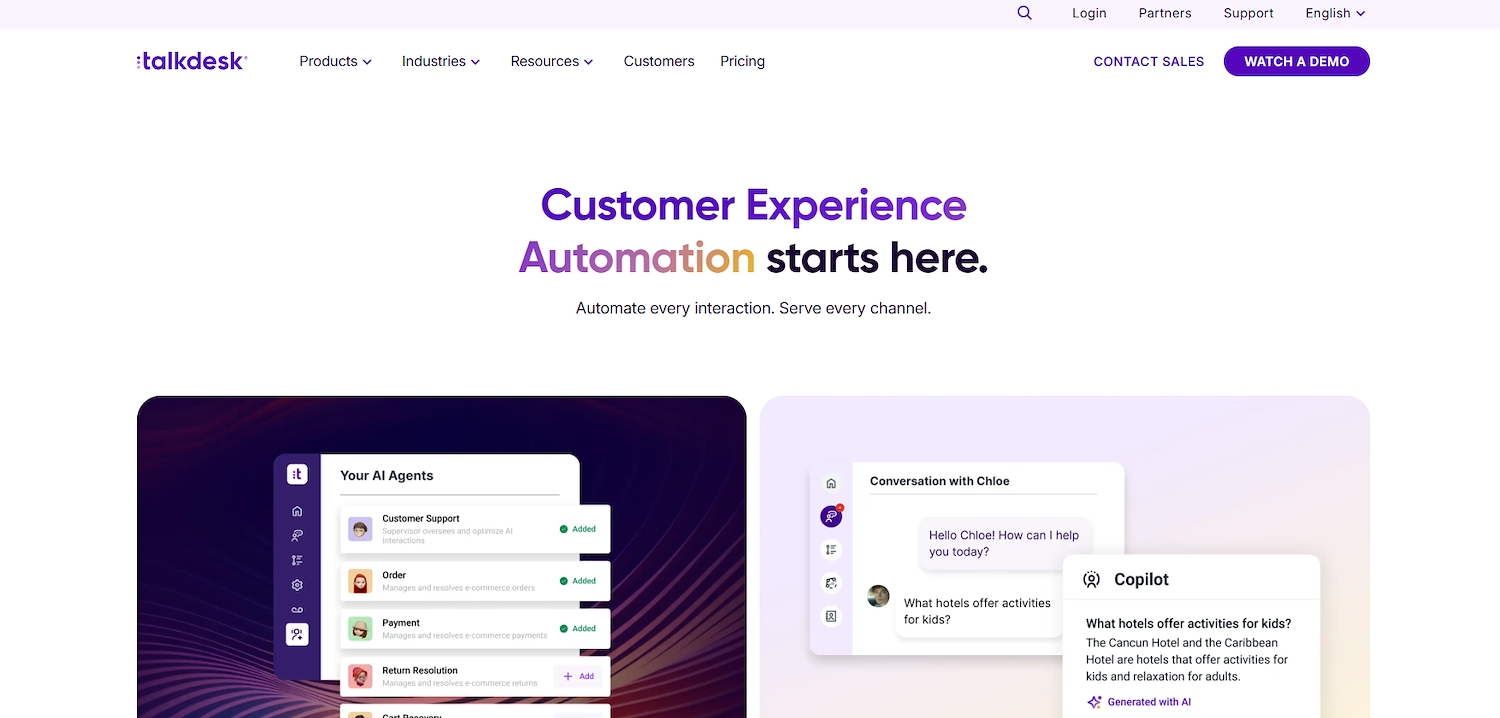
Talkdesk is a cloud contact center platform that uses AI for customer service and sales. For outbound campaigns, it offers predictive, power, and preview dialer modes. The system also handles inbound support with tools for intelligent call routing and provides real-time agent assistance.
It unifies customer interactions from voice and digital channels and integrates with common CRM platforms.
Talkdesk's Main Features
Offers industry-specific “Experience Clouds” for sectors such as financial services, healthcare, and travel.
Embeds contact center functionality directly into other software or mobile applications via Talkdesk Embedded.
Uses Multi-Agent Orchestration to coordinate workflows between numerous AI and human agents.
Includes Identity & Compliance monitoring to help ensure secure customer interactions.
How Talkdesk Compares to Adversus
Average Review score: 4.4/5 stars based on 2,431 G2 reviews.
Talkdesk provides industry-specific solutions for sectors like healthcare and finance, which differs from Adversus’s more general toolset for outbound campaigns.
The platform uses AI to coordinate workflows between multiple agents, a different approach to automation compared to Adversus, which focuses on outbound dialing.
It allows users to embed contact center functions directly into other software, offering a level of integration not present in Adversus.
This tool includes features that monitor identity and compliance to help secure interactions, whereas Adversus centers its features on outbound call productivity.
Potential Downsides Of Talkdesk Vs. Adversus
Talkdesk's all-in-one platform supports many channels. For teams that focus only on high-volume telemarketing, its broad feature set may feel less direct than the call-centric layout of Adversus.
Some users find that advanced administrative functions in the tool can be complex to manage. This is different from Adversus, which is generally considered more straightforward for teams to set up and use for outbound campaigns.
The platform's performance can sometimes depend on a stable internet connection, with some users reporting occasional glitches. This might be a factor for teams that need the consistent stability Adversus provides for high-volume calling.
Budget and Pricing Considerations
Adversus offers a single plan at $175 per user monthly, providing straightforward pricing. Talkdesk has a more flexible, tiered model, with its CX Cloud Essentials plan starting at $85 per user per month and its Elite plan at $145, making it a more cost-effective option.
7) NICE CXone
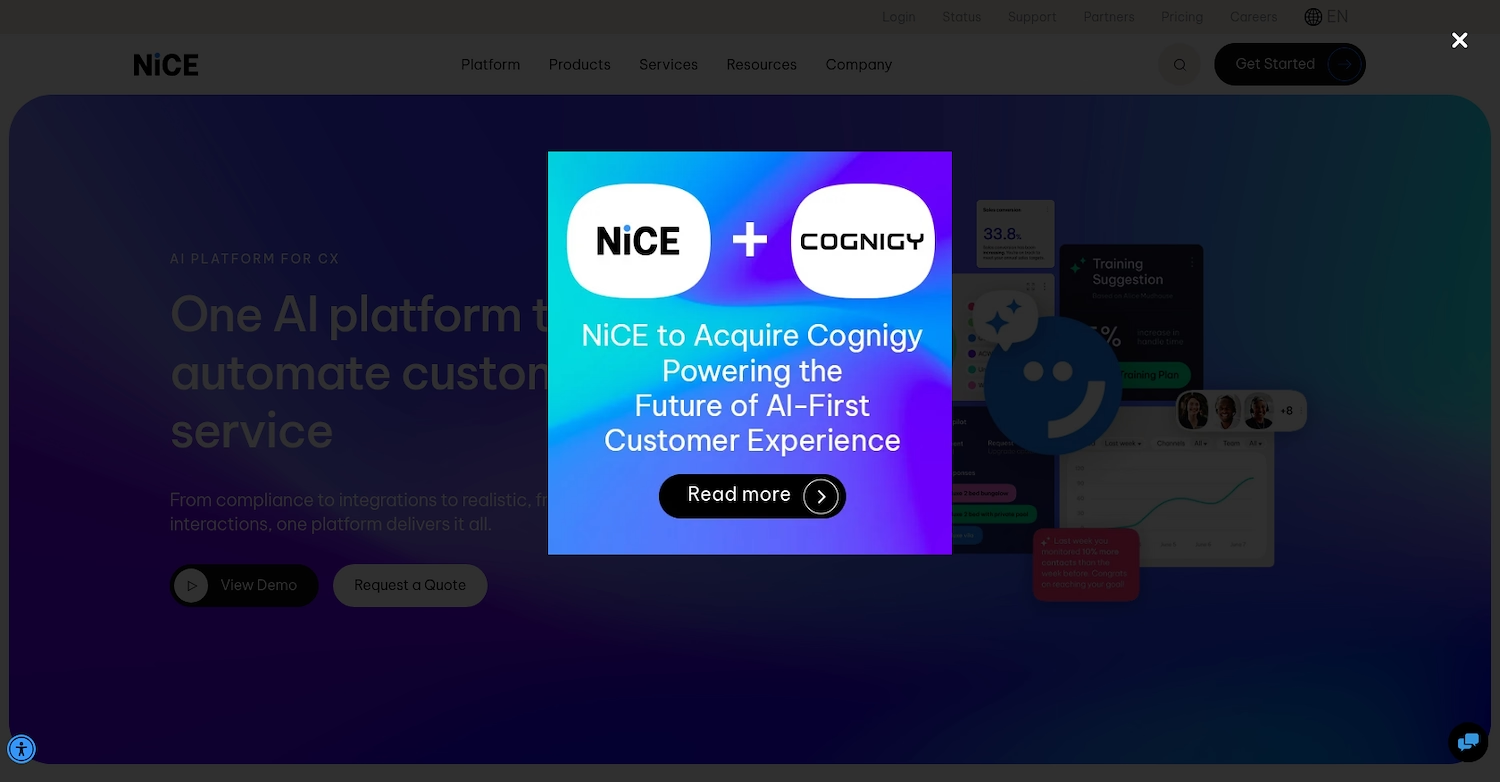
NICE CXone is a cloud platform that unifies customer interactions across voice and digital channels. It provides tools for both inbound support and outbound sales, with a predictive dialer for campaigns. The system uses AI to route customer inquiries and assist agents during calls.
NICE CXone's Main Features
The platform includes Enlighten AI, which uses models to analyze customer behavior and automate quality management.
It provides Journey Orchestration to map and automate customer paths across different touchpoints with a visual workflow builder.
The system offers Workforce Management tools for forecasting, scheduling, and tracking agent adherence to optimize staffing.
It routes interactions from over 30 digital channels, including social media and messaging apps, to the best-suited agent.
How NICE CXone Compares To Adversus
Average Review score: 4.3/5 stars based on 1,718 G2 reviews.
NICE CXone routes interactions from over 30 digital channels, including social media. This provides more communication options than Adversus, which focuses on voice calls.
The platform uses Enlighten AI to analyze customer behavior and automate quality management. This is different from Adversus, where automation centers on outbound dialing rather than on-call analytics.
It provides workforce management tools for agent scheduling and performance tracking. This gives managers more oversight compared to the more limited supervision features in Adversus.
This tool offers Journey Orchestration to map customer paths with a visual builder. Adversus does not have a comparable feature for designing customer workflows across touchpoints.
Potential Downsides Of NICE CXone Vs. Adversus
NICE CXone's platform is designed for broad customer experience tasks. This can make its outbound tools feel less specialized compared to Adversus, which is built specifically for high-volume telemarketing.
The platform's advanced features, such as custom reporting, can have a steep learning curve. This differs from Adversus, which is often noted as more user-friendly and faster to set up for outbound teams.
Some users report occasional call quality issues or dropped calls. This may be a concern for teams that need the consistent stability Adversus generally provides for high-volume call campaigns.
Budget and Pricing Considerations
Adversus offers a single plan at $175 per user monthly, providing straightforward pricing. NICE CXone has a tiered model with its Voice Agent plan starting at $94 per agent per month, making it a more cost-effective choice for teams needing core voice features. This flexibility allows businesses to select a plan that fits their specific needs, unlike Adversus's all-in-one approach.
8) Genesys Cloud CX
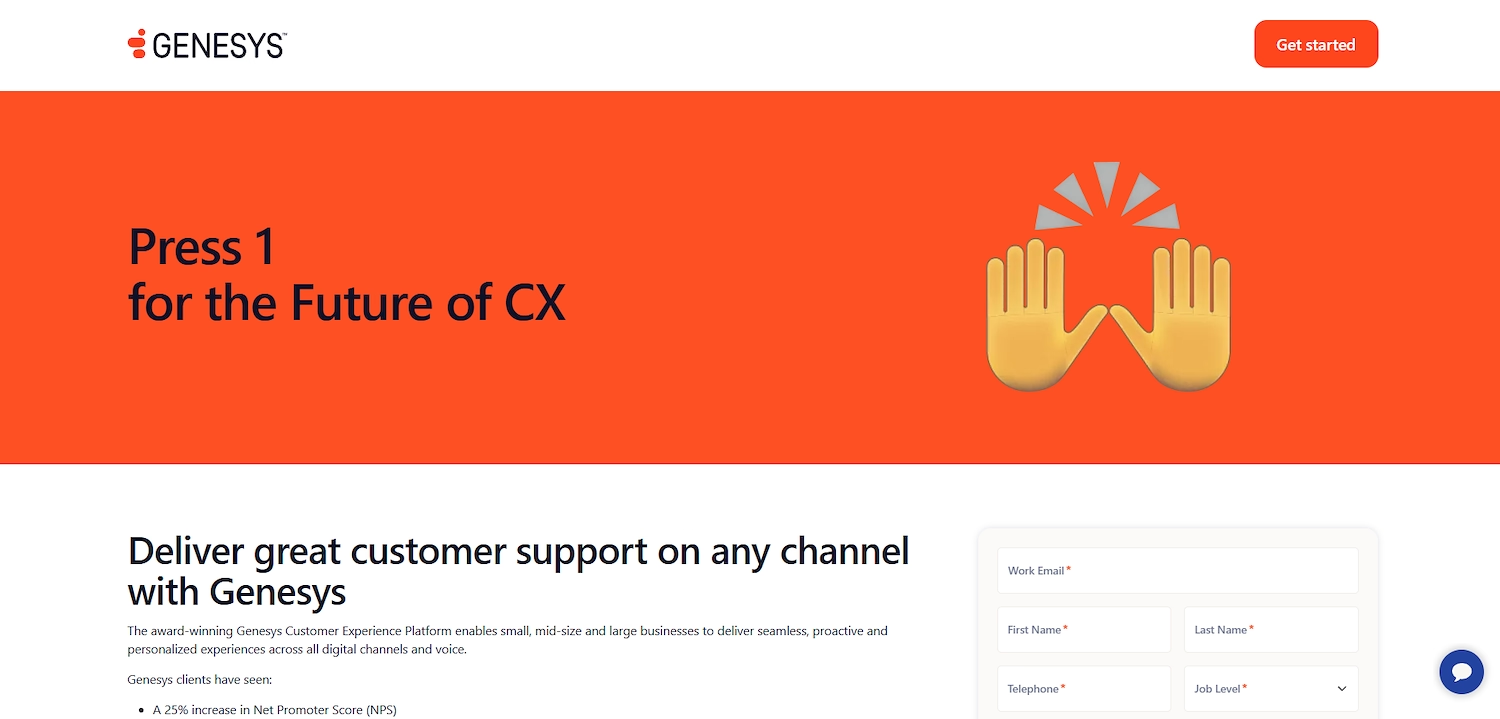
Genesys Cloud CX is a cloud platform for customer interactions. It supports sales and service teams with tools for voice and digital channels. For outbound work, the system offers dialer functions for campaigns. It also uses AI to route inquiries and provide assistance to agents.
Genesys Cloud CX's Main Features
Supports communication across voice, web chat, and email channels.
Routes and queues customer sessions to manage inbound traffic.
Provides concurrent calling functionality for handling multiple calls.
Includes session summary notes for administrative documentation.
How Genesys Cloud CX Compares To Adversus
Average Review score: 4.4/5 stars based on 1,432 G2 reviews.
Genesys Cloud CX supports customer interactions across voice, web chat, and email, offering more channels than the voice-focused Adversus platform.
The platform includes session routing and queuing to manage inbound customer inquiries, which provides more structure for support tasks compared to Adversus.
This tool provides concurrent calling, allowing agents to handle multiple calls at once, a feature different from standard outbound dialers like Adversus.
It includes session summary notes for documentation, giving managers more detailed oversight than the general overview tools available in Adversus.
Potential Downsides Of Genesys Cloud CX Vs. Adversus
Genesys Cloud CX is an all-in-one platform. For teams that only need outbound calling, its broad features can feel less direct compared to the specialized telemarketing tools in Adversus.
The platform's setup can be complex, with an average implementation time of four months. This is different from Adversus, which is generally seen as more user-friendly and faster to set up.
Some users find the standard reporting features are limited. Building custom reports can require extra effort, which differs from the more straightforward overview tools in Adversus.
Budget and Pricing Considerations
Adversus offers a single plan at $175 per user monthly, which provides clear budgeting. Genesys Cloud CX uses a custom pricing model, so costs vary based on features and scale. For accurate pricing information, we recommend visiting the Genesys Cloud CX's official website.
9) 8x8 Contact Center
8x8 Contact Center is a cloud platform that combines contact center functions with unified communications. It supports customer interactions across voice and digital channels. The system is designed for both inbound service and outbound sales campaigns, integrating with various business tools.
8x8 Contact Center's Main Features
Supports omnichannel routing for voice, email, web chat, SMS, and social media interactions.
Provides AI tools for intelligent routing, speech analytics, and virtual agent self-service options.
Includes workforce engagement management for quality monitoring, agent scheduling, and performance analytics.
Offers pre-built integrations with CRMs such as Salesforce, Zendesk, and Microsoft Dynamics.
How 8x8 Contact Center Compares To Adversus
Average Review score: 4.1/5 stars based on 718 G2 reviews.
8x8 combines contact center with unified communications tools like video and team chat. This offers a broader platform than Adversus, which is built for outbound calling.
The platform manages interactions across voice, email, and social media. This provides more customer touchpoints compared to the voice-centric design of Adversus.
It includes workforce management tools for agent scheduling and quality monitoring. This gives managers more oversight than the supervision features available in Adversus.
This tool uses AI for speech analytics and intelligent routing. This differs from Adversus, where automation is focused on outbound dialing rather than on-call agent support.
Potential Downsides Of 8x8 Contact Center Vs. Adversus
8x8's all-in-one platform can be complex for teams that only need outbound calling. Adversus offers a more specialized toolset focused on high-volume telemarketing.
Some users find the interface less intuitive than expected. This may contrast with Adversus, which is often noted for its straightforward layout for sales agents.
The platform's extensive features can require a longer setup time. This differs from Adversus, which is generally quicker to implement for its specific use case.
Budget and Pricing Considerations
Adversus has a single plan at $175 per user monthly. 8x8 Contact Center offers tiered pricing, with its X6 plan starting at $85 per user per month. This makes 8x8 a more flexible option for teams that need to scale features and costs.
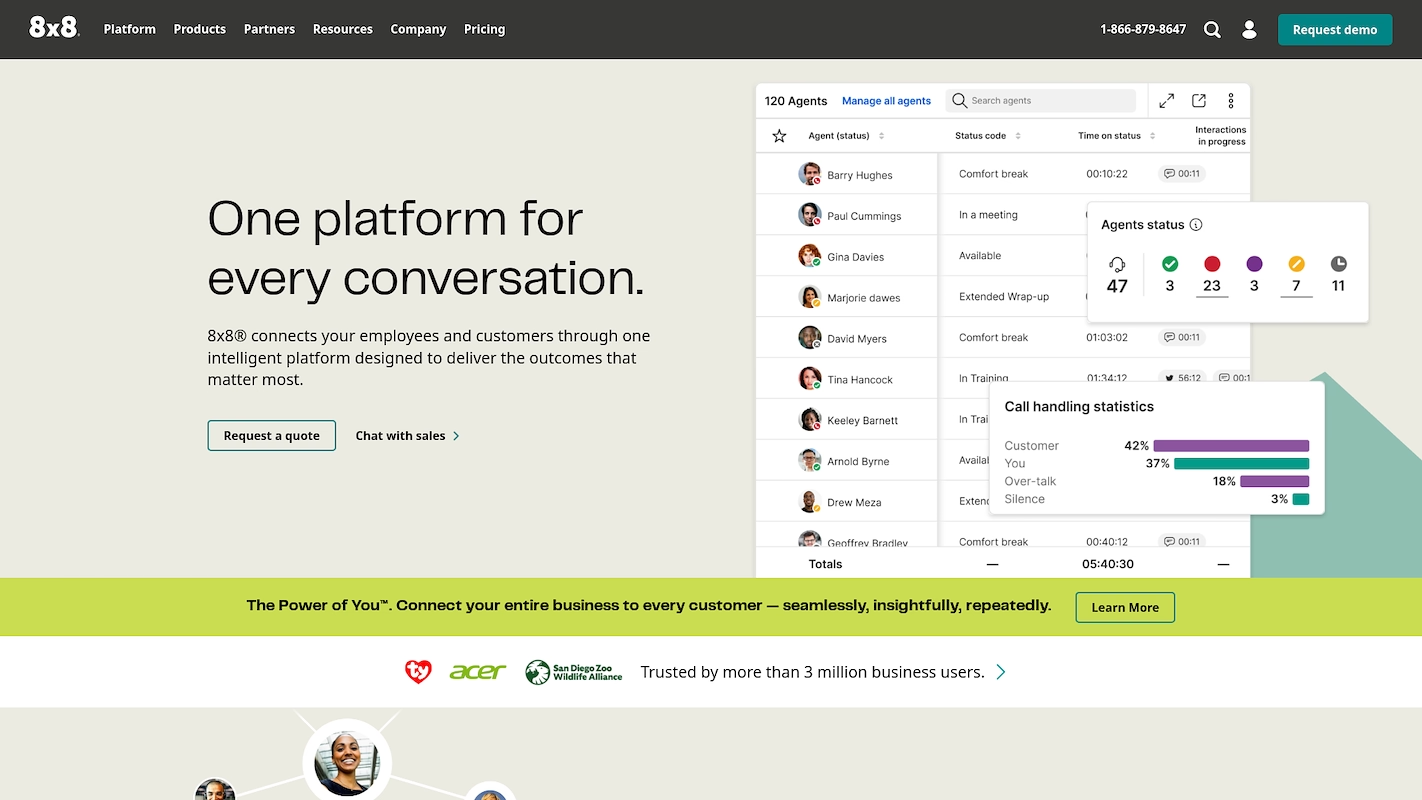
8x8 Contact Center is a cloud platform that merges contact center functions with unified communications. It supports customer interactions across voice, email, web chat, SMS, and social media.
The system is for both inbound service and outbound sales campaigns. It connects with business tools like Salesforce and Zendesk.
8x8 Contact Center's Main Features
Supports interactions across voice and web chat channels.
Routes and queues customer sessions to manage inbound traffic.
Provides concurrent calling functionality for handling multiple calls.
Includes session summary notes for administrative documentation.
How 8x8 Contact Center Compares To Adversus
Average Review score: 4.1/5 stars based on 215 G2 reviews.
8x8 Contact Center supports omnichannel routing for voice, web-chat, email, and social media. This provides more customer touchpoints than Adversus, which is designed primarily for voice calls.
The platform includes workforce management with tools for quality control and agent schedules. This gives managers more oversight compared to the supervision tools in Adversus.
It uses conversational AI for self-service and speech analytics. This is different from Adversus, where automation focuses on the outbound dialer.
This tool provides multiple auto dialer modes, such as predictive and progressive. This offers more flexibility for outbound campaigns than the standard Adversus dialer.
Potential Downsides Of 8x8 Vs. Adversus
8x8 Contact Center combines many communication tools. This can be overwhelming for teams that only need high-volume outbound calling, unlike Adversus, which has a more focused design for that specific task.
Some users report that the platform's many features create a learning curve. This is different from Adversus, which is generally considered more straightforward for new sales agents to use.
Its setup can be more involved, with an average implementation time of three months. Adversus, in comparison, is often noted for a quicker onboarding process for its specialized outbound tools.
Budget and Pricing Considerations
Adversus offers a single plan at $175 per user monthly. In contrast, 8x8 Contact Center provides a tiered model, with its X6 plan starting at $85 per user per month, offering a more flexible and scalable pricing structure.
10) PhoneBurner
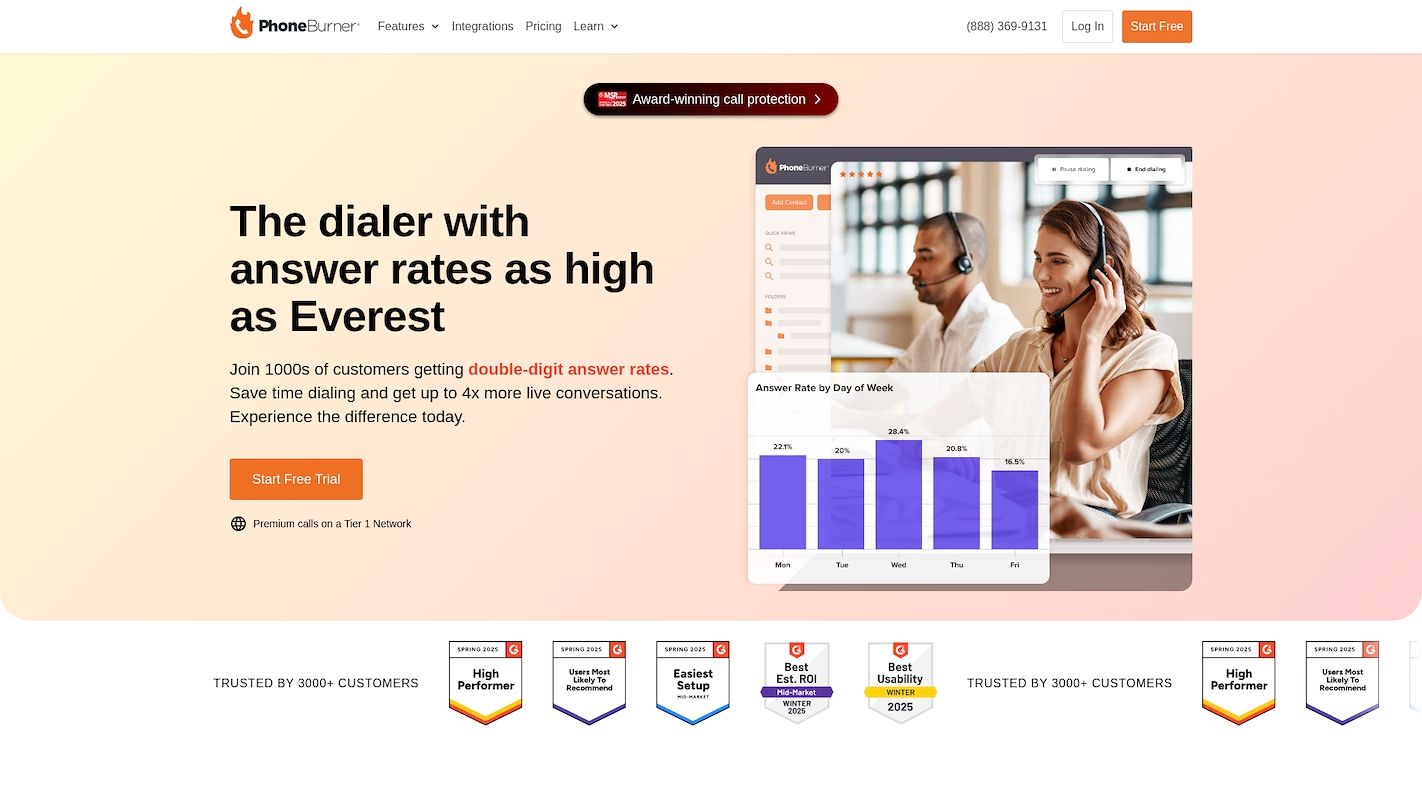
PhoneBurner is a power dialer software that automates outbound calls for sales teams. The platform dials contacts from a list one after another, which lets representatives connect with more leads. It is built for high-volume outreach and lead follow-up.
The system also automates post-call workflows. It can leave pre-recorded voicemails and send emails, which frees up agent time for other tasks.
PhoneBurner's Main Features
Offers preview and progressive dialing options to manage outreach.
Leaves pre-recorded voicemails with a single click to automate post-call tasks.
Distributes leads automatically to sales representatives.
Blends calls, email, and SMS into a single workflow.
How PhoneBurner Compares To Adversus
Average Review score: 4.7/5 stars based on 260 G2 reviews.
PhoneBurner lets agents leave a pre-recorded voicemail with a single click. This automates a post-call task that agents on Adversus typically handle manually.
The tool offers both preview and progressive dialing modes. This gives sales teams more control over their outreach pace compared to the standard outbound system in Adversus.
It includes spam monitoring and remediation to help improve call answer rates. This is a specialized feature for call deliverability not found in Adversus's core toolset.
This platform automatically distributes leads to sales representatives, which adds a layer of workflow automation different from Adversus's agent-driven list management.
Potential Downsides Of PhoneBurner Vs. Adversus
PhoneBurner is designed primarily for outbound calling. It lacks the inbound call handling features found in Adversus, which can be a drawback for teams that manage both types of calls.
The platform combines calls, email, and SMS. For teams that only need voice outreach, this blended system may feel less focused than Adversus's specialized interface for high-volume telemarketing.
Some users report occasional dialer limitations or call connection issues. This might be a concern for teams that rely on the consistent stability Adversus generally provides for its campaigns.
Budget and Pricing Considerations
Adversus offers a single plan at $175 per user monthly. PhoneBurner does not list public pricing, though some users find it expensive. For exact pricing, visit the PhoneBurner official website.
Which One Should You Go With?
The right Adversus alternative depends on many variables. This guide shared several options to help you make an informed decision.
If your sales process needs more than just calling, consider 11x. Our digital workers handle lead generation, outreach, and CRM updates on a single platform, supplementing your sales team.


